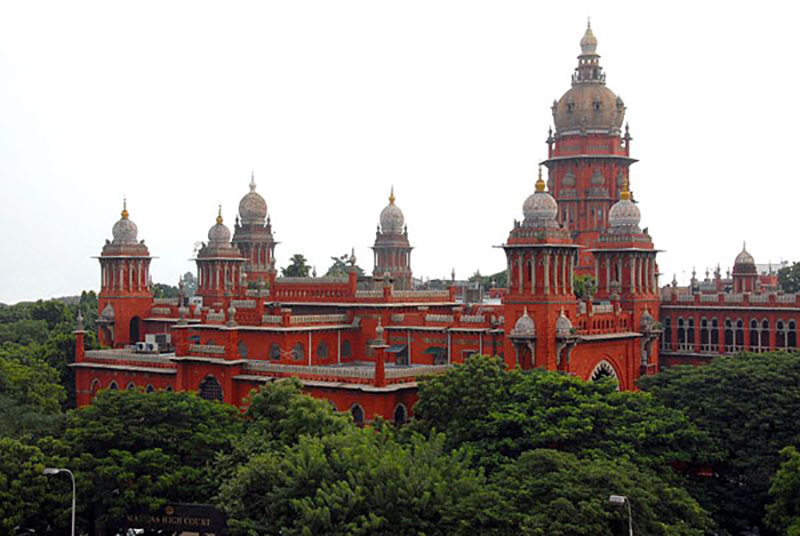Debate on religion should not turn into hate speech': Madras HC on current discourse on Sanatan Dharma

Chennai (Tamil Nadu): In the midst of the controversy surrounding DMK minister Udhayanidhi Stalin's remarks, the Madras High Court said that Sanatana Dharma includes enduring duties derived from various Hindu sources, emphasizing responsibilities towards the nation, the king, parents, Gurus, the impoverished, and more, media reports said.
In a September 15 order, Justice N Seshasayee, said spirited debates surrounding Sanatana Dharma were healthy but aired concerns over the current discourse.
The judge was hearing a petition challenging a circular issued by a state government-run college asking female students to share their opinions on the theme 'Opposition to Sanatana' on the birth anniversary of former Tamil Nadu Chief Minister and DMK founder CN Annadurai.
Justice Seshasayee emphasised the need to ensure that free speech related to religion does not transgress into hate speech and cause harm. “It is necessary for one to ensure that no one is injured and free speech cannot be hate speech.”
The court is conscious of the very vociferous, and at time noisy debates on pro and anti-Sanatana Dharma and the court could not help pondering over with genuine concern for what is going around, he was quoted as saying by news agency ANI.
"Somewhere, an idea appears to have gained ground that Sanatana Dharma is all about, and only about, promoting casteism and untouchability. Untouchability in a country of equal citizens cannot be tolerated, and even if it is seen as permitted somewhere within the principles of 'Sanatana dharma', it still cannot have a space to stay, since Article 17 of the Constitution has declared that untouchability has been abolished. It is part of the fundamental right," the court said, according to ANI
"And, under Art. 51A(a), it is the fundamental duty of every citizen to, 'abide by the Constitution and respect its ideals and institutions..'. Therefore, untouchability, either within or outside Sanatana Dharma can no longer be Constitutional, though sadly it still exits," it added, the report said.
The court noted the petitioner Elangovan's strong argument that Sanatana Dharma neither endorses nor advocates untouchability. Instead, it emphasizes equal treatment for all practitioners of Hinduism.
"As religious practices move with time, some bad or evil practices may un-noticingly creep into it. They are the weeds required to be removed. But why should the crop be chopped?' - This, in short the essence of the submissions of the learned counsel," the court noted.
The court, however, dismissed the plea after noting that the circular had already been withdrawn by the college.
It said Article 25 has granted all citizens the fundamental right to practice any religion.
"Every religion is founded on faith, and faith by nature accommodates irrationality. Therefore, when free speech is exercised in matters pertaining to religion, it is necessary for one to ensure that no one is injured," the court said.
"In other words, free speech cannot be hate speech, as the Hon'ble Supreme Court has cautioned. The users of free speech must not ignore to factor these aspects while exercising their right. If this is ignored, the course of any debate will get derailed, and the objective behind it will lose significance," it added.
The court said it would be appreciable, if free speech encourages dispassionate, and healthy public debates, and helps society to move forward, said the report.
"How free speech is seen exercised these days? If the free speech made through the social media is taken as a basis, anyone who has little to do with science, or rocket, or space, will be lecturing on rocket science. While this is also accommodated within the right to free speech, yet it may be helpful to gain some attention, and may not take it beyond."
"It would be appreciable, if free speech encourages dispassionate, and healthy public debates, and help the society to move forward, along the lines which the Constitution envisages. At the end of the day, every citizen traces his existence to the Constitution, and hence it is his duty to abide by its values, its ethos, and to hold an uncompromising abidance to its spirits. This should not be forgotten. Hope it prevails," the order said, according to the ANI report.




